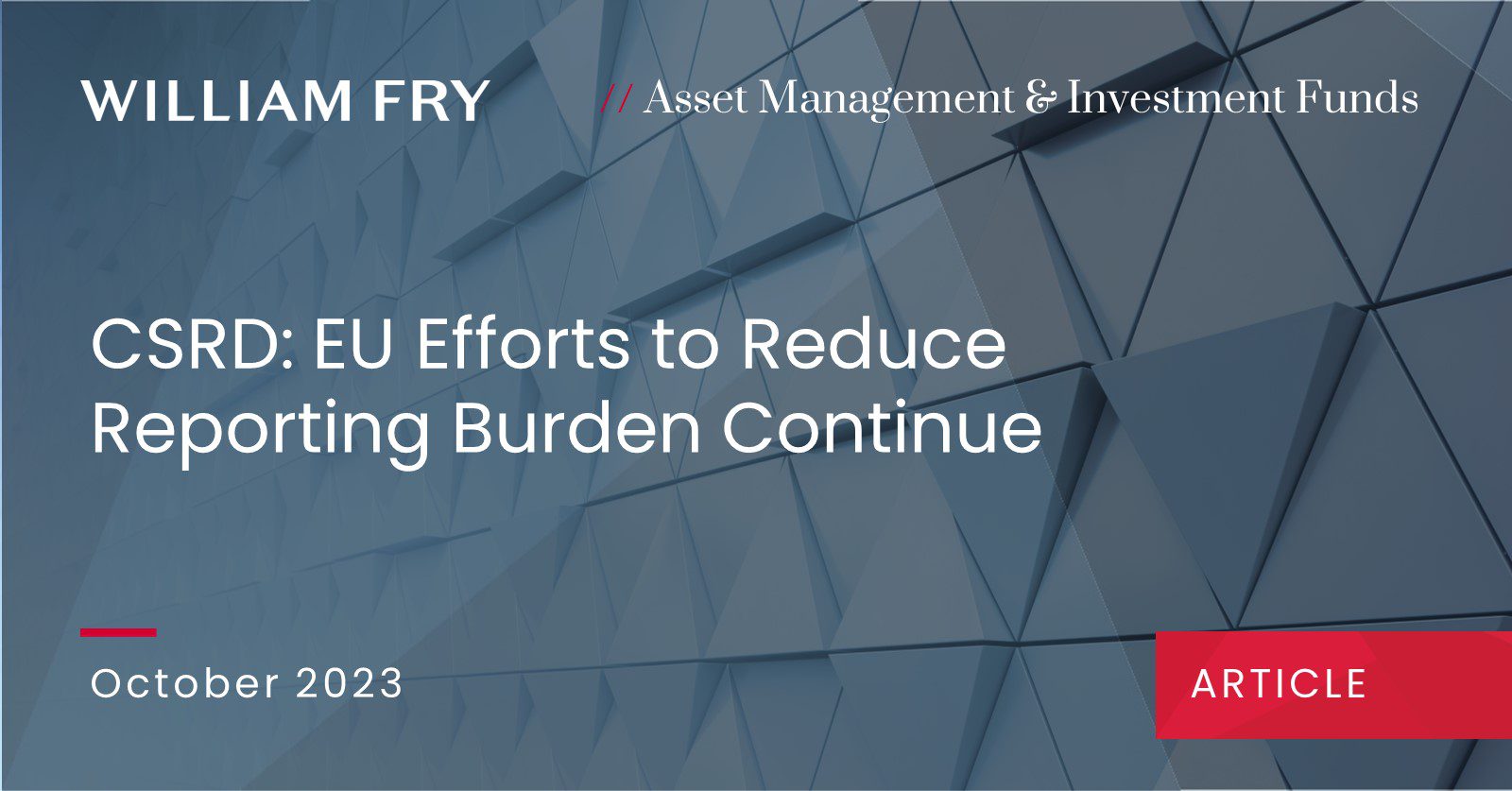Corporate sustainability reporting rules under CSRD first apply from 1 January next year.
Once fully applicable, CSRD will require all large and EU listed (other than micro) companies, along with non-EU companies with significant EU activities, to report both on the environmental and social risks and opportunities for their business and the impacts of their activities on people and planet.
However, even before the CSRD becomes applicable next year, the EU has relented to sustained pressure for a reduction of the sustainability reporting burden in three key ways.
- Firstly, by replacing the original proposal for largely mandatory reporting across approximately 1,400 sustainability data points with a requirement to report only on those which are material to the reporting company on a self-assessment basis. See here for further details.
- Secondly, through a reduction in the scope of CSRD by narrowing the definition of what constitutes a ‘large’ company subject to sustainability reporting. EU legislation was adopted on 17 October last, to effect this change which requires Ireland, and all Member States, to reduce the scope of sustainability reporting by large companies to those which satisfy 2 out of 3 criteria of balance sheet total of €25m (increased from €20m), net turnover of €50m (increased from €40m) and/or 250 employees. See here for further details.
- Thirdly, and most recently, the Commission has proposed a two year-delay to the CSRD adoption deadline of 30 June 2024 for (i) sector-specific sustainability reporting standards and (ii) third-country standards for non-EU parent companies which are required to report at group level under CSRD if they have >€150m net turnover in the EU and either large or listed SME EU subsidiaries or EU branches with >€40m net turnover in the EU. Currently, there is no CSRD deadline for sector-specific sustainability reporting in accordance with the standards now proposed to be adopted by June 2026. However, CSRD prescribes a four-month period between adoption and entry into force of adopted standards. As a result, in-scope companies are not expected to become subject to sector-specific sustainability reporting rules before end-2026. Group level reporting by in-scope non-EU companies is first required for financial year 2028 and no delay to this deadline is currently proposed, meaning that relevant companies will have 2 (rather than the current 4) years to prepare for reporting following publication of the standards.
Contact us
For more information or advice on the above, please get in touch with the key contacts, any of the ESG & Sustainability Practice Group or your usual William Fry contact.
Recommended Insights
Article and Insights
5
Sep 2024
September 2024 updates across sustainable finance, macroprudential policy for inve...

Partner
Nessa Joyce
Article and Insights
25
Jul 2024
Five key items ESMA wants to change in the sustainable finance framework as per it...

Partner
Nessa Joyce
Article and Insights
2
May 2024
Here is a selection of recent publications and podcasts contained in our May 2024 ...

Consultant
Gail Nohilly
Article and Insights
22
Apr 2024
What do you need to know?

Consultant
Cassandra Byrne
Article and Insights
19
Apr 2024
New laws approved to change energy performance of buildings requirements - what do...

Consultant
Cassandra Byrne
Article and Insights
26
Mar 2024
FIDIC are developing a new standard form contract for offshore wind projects. What...

Consultant
Cassandra Byrne
Article and Insights
25
Mar 2024
Welcome to the March 2024 edition of our Asset Management & Investment Funds Update.

Consultant
Patricia Taylor
Article and Insights
21
Mar 2024
Commission adopts delegated regulation to establish EU-wide scheme rating the sust...

Consultant
Cassandra Byrne
Article and Insights
21
Dec 2023
A look ahead to the key sustainable finance developments in 2024 for companies, in...

Partner
Nessa Joyce
Article and Insights
18
Dec 2023
We look at the revisions to the SFDR delegated measures set out in the ESAs' Final...

Partner
Nessa Joyce
prev
next



